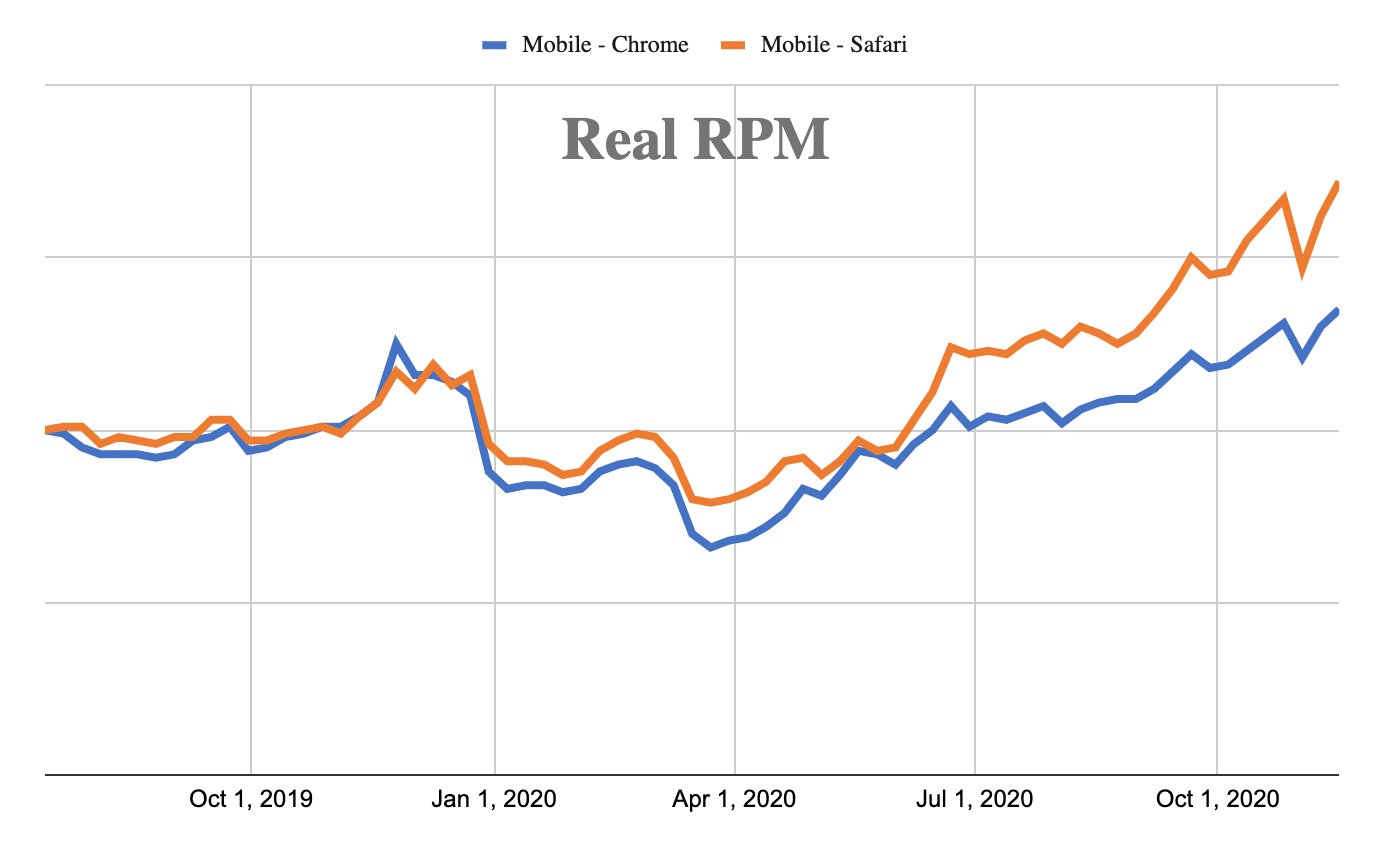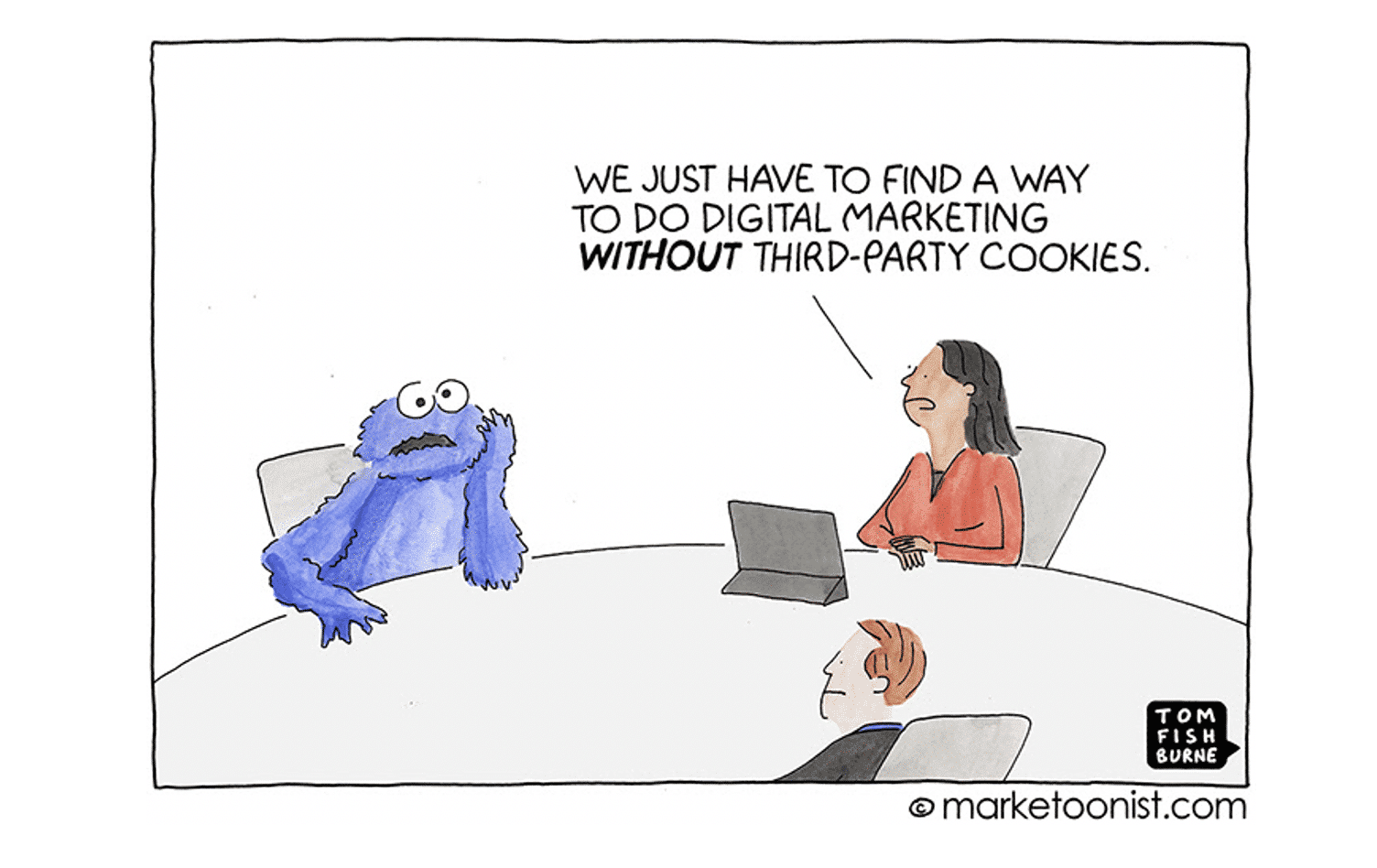Let’s talk about Cookie Monsters.
Since Apple launched ITP in 2017, the advertising industry is mourning the death of the third-party cookie almost as much as the actual Cookie Monster, who’s been popping up in social media memes since Google announced Privacy Sandbox.
See also: Taboola Native Advertising
But not all cookies are the same. There are first-party cookies and third-party cookies. The difference is important:
First-party cookies are stored by the domain (website) you are visiting directly. They allow website owners to collect analytics data, remember language settings, and perform other useful functions that help provide a good user experience. For example, if you shop for shoes on DSW’s site, they’ll know you’re the same person when you come back. They won’t have personally identifiable information on you like Facebook does, but they’ll know you’re the same person.
What does a Cookieless World mean?
Nobody has a problem with the first-party cookies — not Apple, not Google — no one. They’re here to stay.
Third-party cookies, on the other hand, are at risk. A third-party cookie is created by a domain other than the one you are visiting directly. For example, if an ad tech company is buying ad inventory on a news site, they’ll be able to create a third-party, but not a first-party cookie, so they can identify users who interacted with their ads. If the browser blocks third-party cookies, like Safari does, the ad tech company won’t know if that person returned to the site again.
Retargeting is another good example. If third-party cookies are blocked, an ad tech company that can’t use first-party cookies won’t be able to identify users across sites and serve them retargeted ads.
Some companies rely on third-party cookies more (“The Cookie Monsters”), some less — it all depends on what data you actually need in order to drive value for your clients, and to web visitors.
Over the last couple of years, third-party cookies were already being blocked by more and more browsers (first Apple’s Safari, then Firefox, then Microsoft latest Edge browser). During those same years, we were able to make Taboola immune to the death of third-party cookies. Here are a few reasons:
We have our own first-party cookie because we’re the recommendation engine for our publisher partners. Since Taboola recommends our partner site’s own editorial content, publishers integrate our code on the page itself. This allows us to use our own first-party cookie so that we can better personalize recommendations. For example, if someone clicks on Sports content, we’ll show them more sports headlines the next time they visit our partner site.
We can use contextual targeting to allow our advertisers to reach users when they read about things they truly care about. Over the years we’ve developed a world-class Natural Language Processing (NLP) technology that “understands” the context of web pages, thereby allowing advertisers to target their audience based on context, without any dependency on third-party cookies. Because Taboola is not buying inventory programmatically, but rather rendered as part of the page itself, we’re able to capture the taxonomy of the page and surface those keywords for advertisers. This is incredible for advertisers. When advertisers buy social ads, they buy the identity people create for themselves, but not necessarily their authentic identity. People might not share topics that are very important to them on social media, but they’ll read about them all the time. Our advertisers can reach people based on a much closer version of their true passions.
So, operating in a world without third-party cookies is not a new concept for us. In recent years we’ve had to be successful in the wake of third-party cookies being blocked by browsers, regulations like GDPR and CCPA, VPNs, ad blockers, and other cookie-less environments. The following graph, comparing our yield on Safari vs. Chrome mobile, illustrates how well we cope with the blocking of third-party cookies, using our ability to utilize first-party cookies and contextual signals on publisher sites in order to personalize our feeds:

The chart above shows RPM on Safari has outpaced that of Chrome on mobile devices despite the fact that Safari blocked third-party cookies in 2017.
This is a long journey, and while third-party cookies might go away, we’re fortunate to be a recommendation engine, powering our publisher partner’s editorial requirements which enables us to be resilient to these events, and stay committed to power recommendations for the open web.



